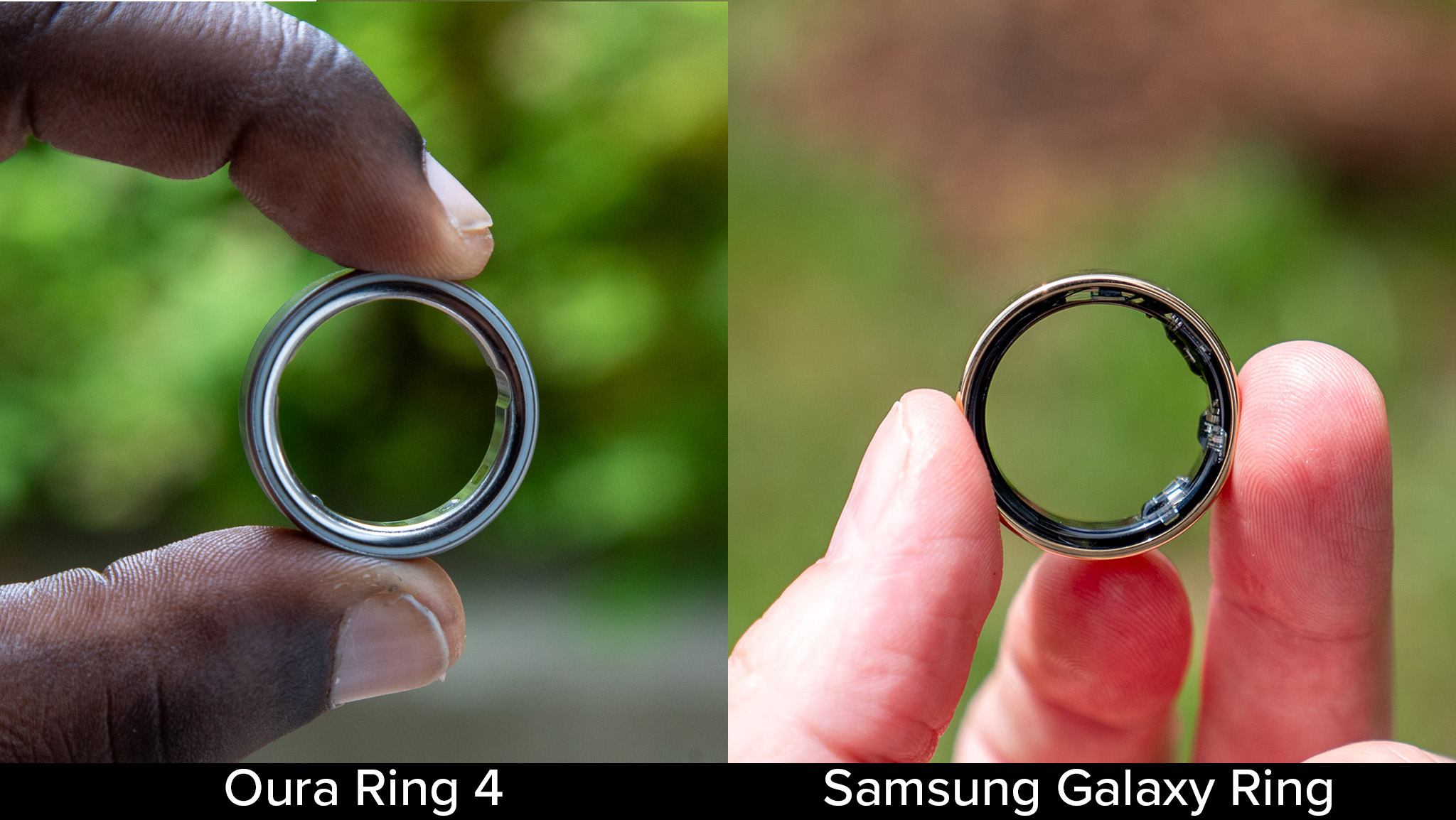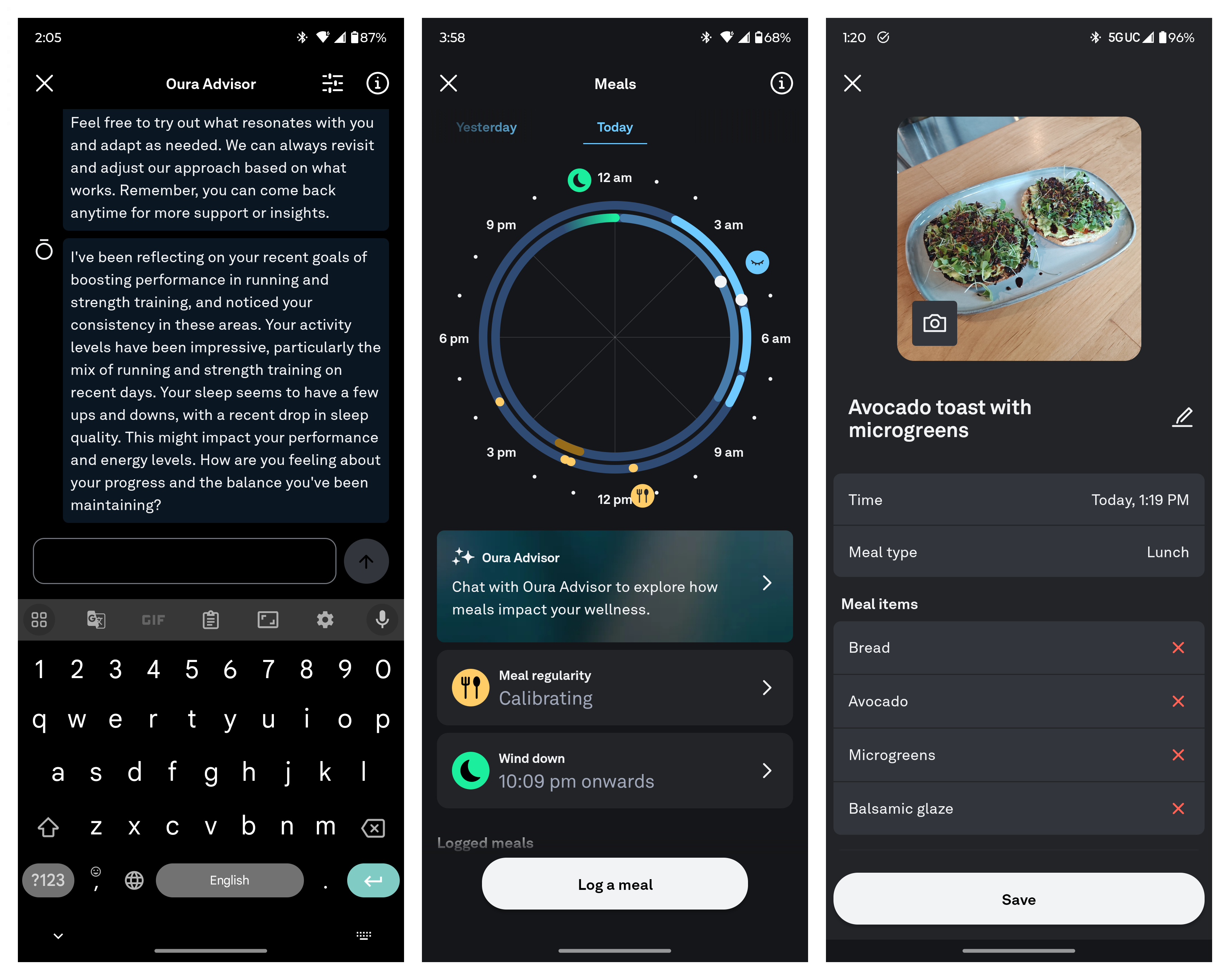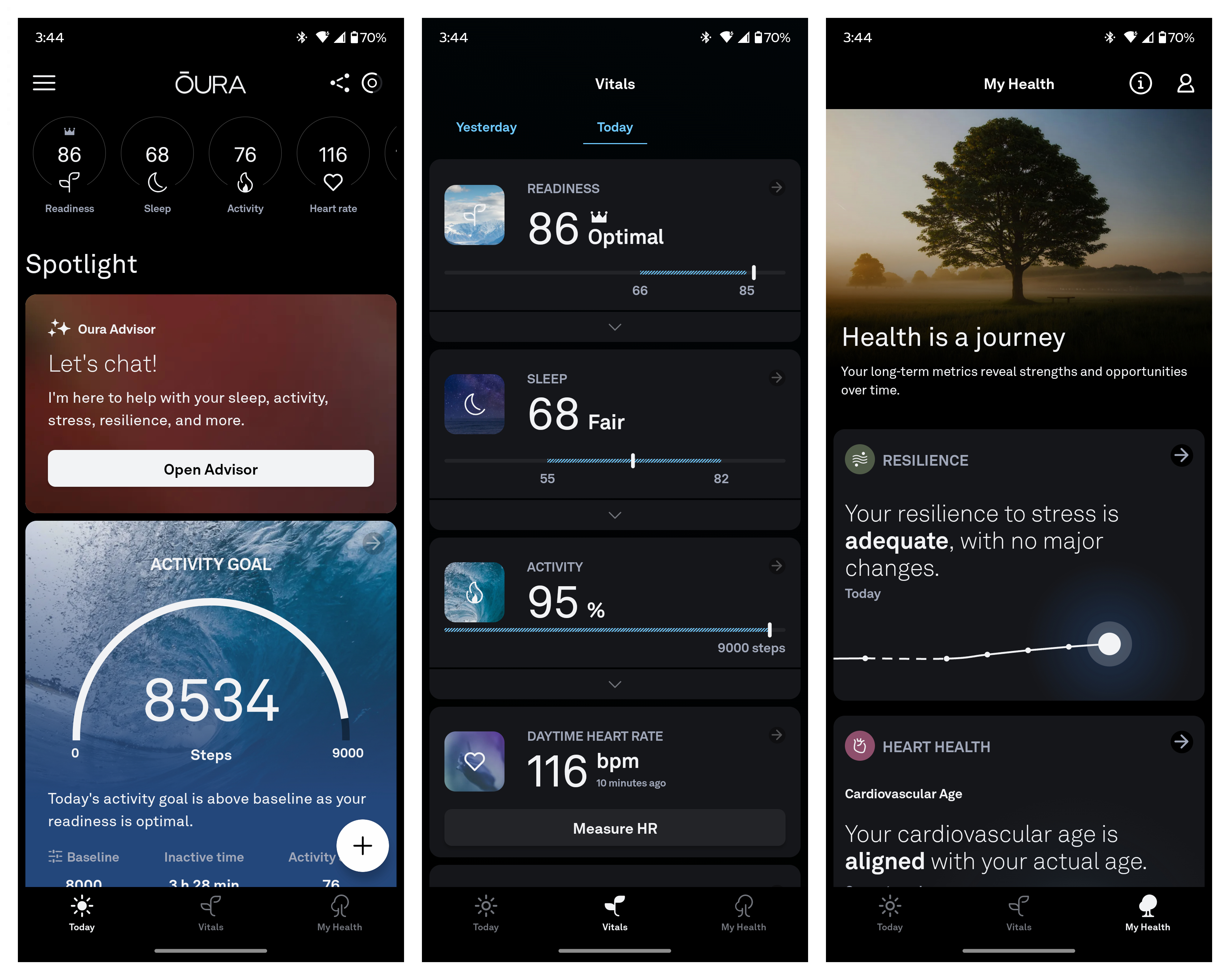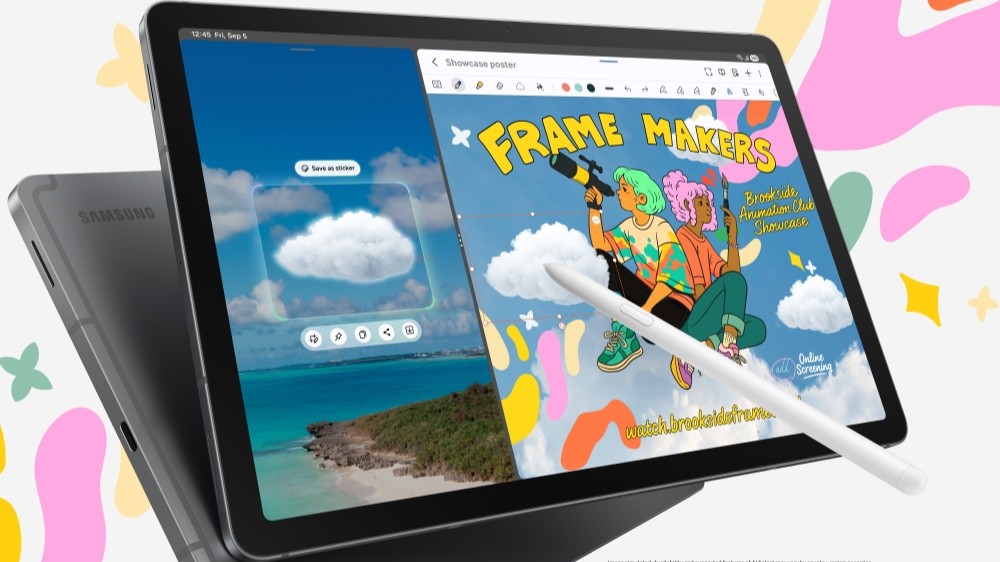Oura Ring 4 vs. Samsung Galaxy Ring: The underdog wins again
Long-term subscription commitments aside, the Oura Ring remains the king.
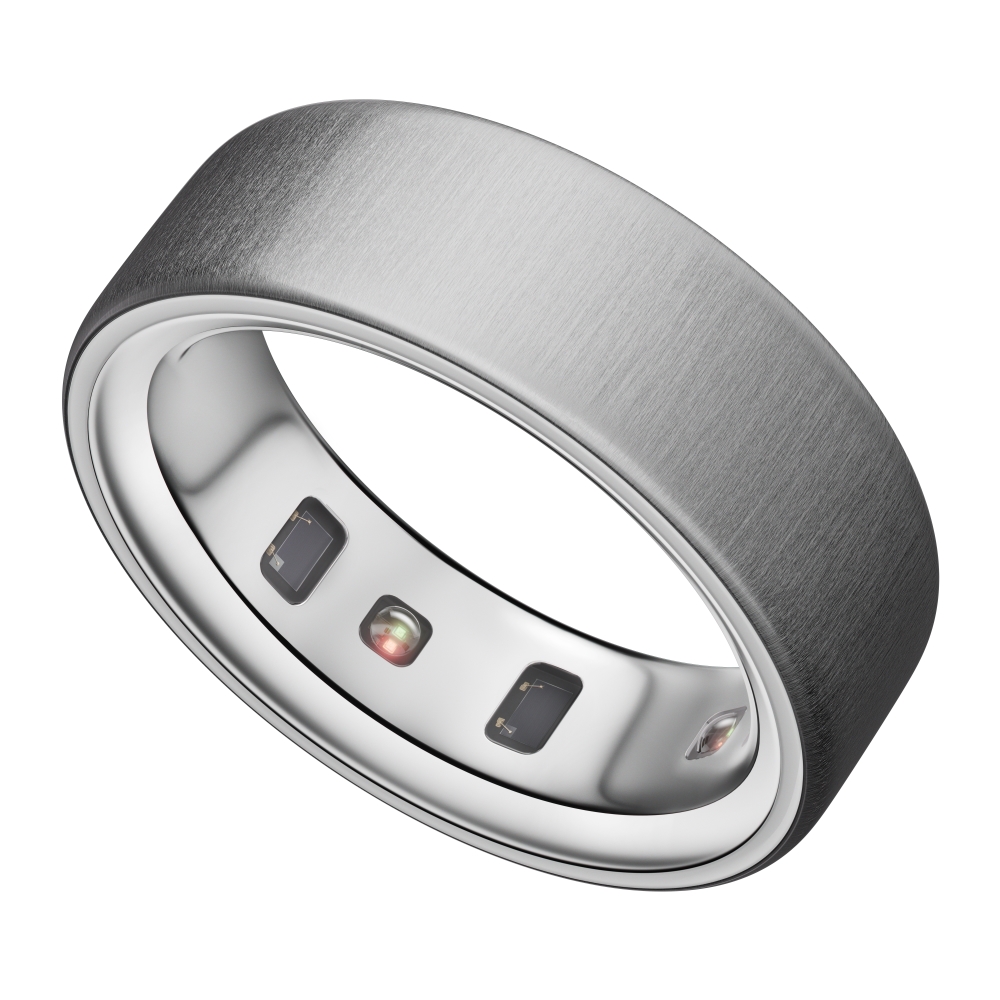
Smart inside and out
Oura maintains supremacy with the Oura Ring 4, sporting a new design with a fully flush titanium inner ring. The brushed metal option keeps scratches at a minimum, and Oura's already excellent health tracking is even better with a redesigned app and new AI-powered features like food tracking. It doesn't have a charging case like the Galaxy Ring and still requires a monthly subscription for the best features, but the build and health tracking accuracy help make up for the extra cost.
Pros
- Sleek, durable design
- Better sensor accuracy
- Heart rate monitoring with activity detection
- Great battery life
- Improved app experience
Cons
- Still relies on a subscription
- No charging case
- Find My Ring still not available on Android
- No options for official ring covers
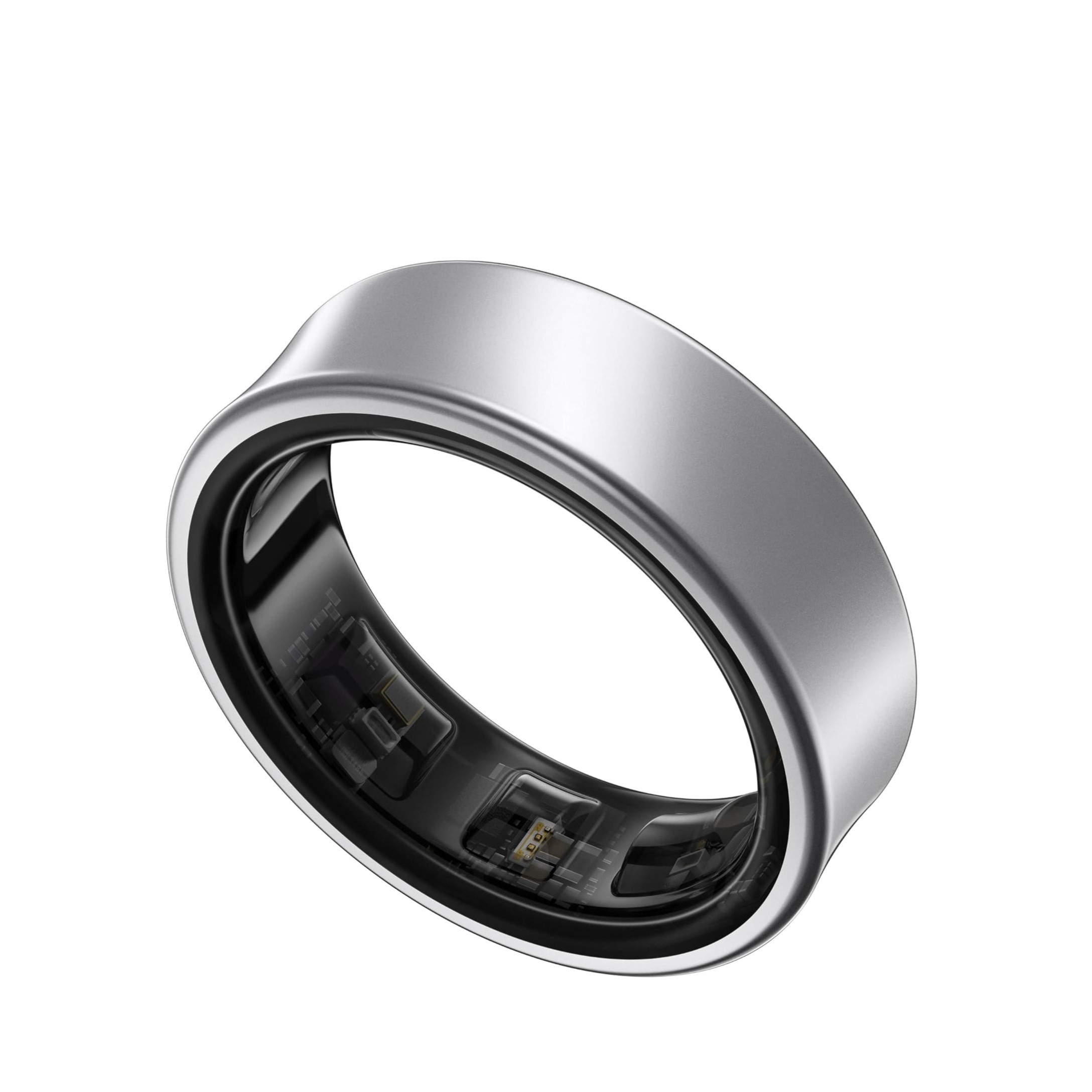
Not quite there yet
Samsung's first smart ring is a cool-looking piece of tech but, ultimately, falls quite short of expectations. Week-long battery life and a handy charging case mean you won't ever worry about it dying, and it ties in nicely with Samsung's Galaxy ecosystem including Find My Ring features that are exclusive to Galaxy devices. But its health tracking capabilities are extremely limited and largely inaccurate, plus a lack of features like AFib detection means 24/7 wear doesn't make much sense.
Pros
- Week-long battery life
- Stylish aesthetic
- Light and comfortable
- Automatic walking and running tracking
- Automatic sleep tracking
- Lots of visible health data
Cons
- More expensive than a smartwatch
- Very limited fitness tracking capabilities
- Mediocre sleep tracking accuracy
- No AFib detection
- Gestures are gimmicky and only work on Galaxy phones
- Find my device is severely limited on non-Samsung phones
- Some insights are limited to Samsung phones with Galaxy AI
Samsung's first smart ring, the Galaxy Ring, gave the category a much-needed boost of popularity this year. But while Samsung might have drawn a lot of attention to this relatively niche wearable category, Oura was the company that started it all.
Right on cue, Oura launched its fourth-generation smart ring, the Oura Ring 4 just a few weeks after the Samsung Galaxy Ring. For the most part, it's a better product than Samsung's in basically every way but it has one potentially fatal flaw: the best features require a monthly subscription.
Still, as you'll find out, Oura's hardware and software are just plain better than Samsung's, including better and more accurate health tracking, competent workout tracking, and great features like AI-powered food logging. Is the Oura Ring 4 worth the extra money it'll cost you over time? Yes, and here's why.
Oura Ring 4 vs. Samsung Galaxy Ring: Cost and value
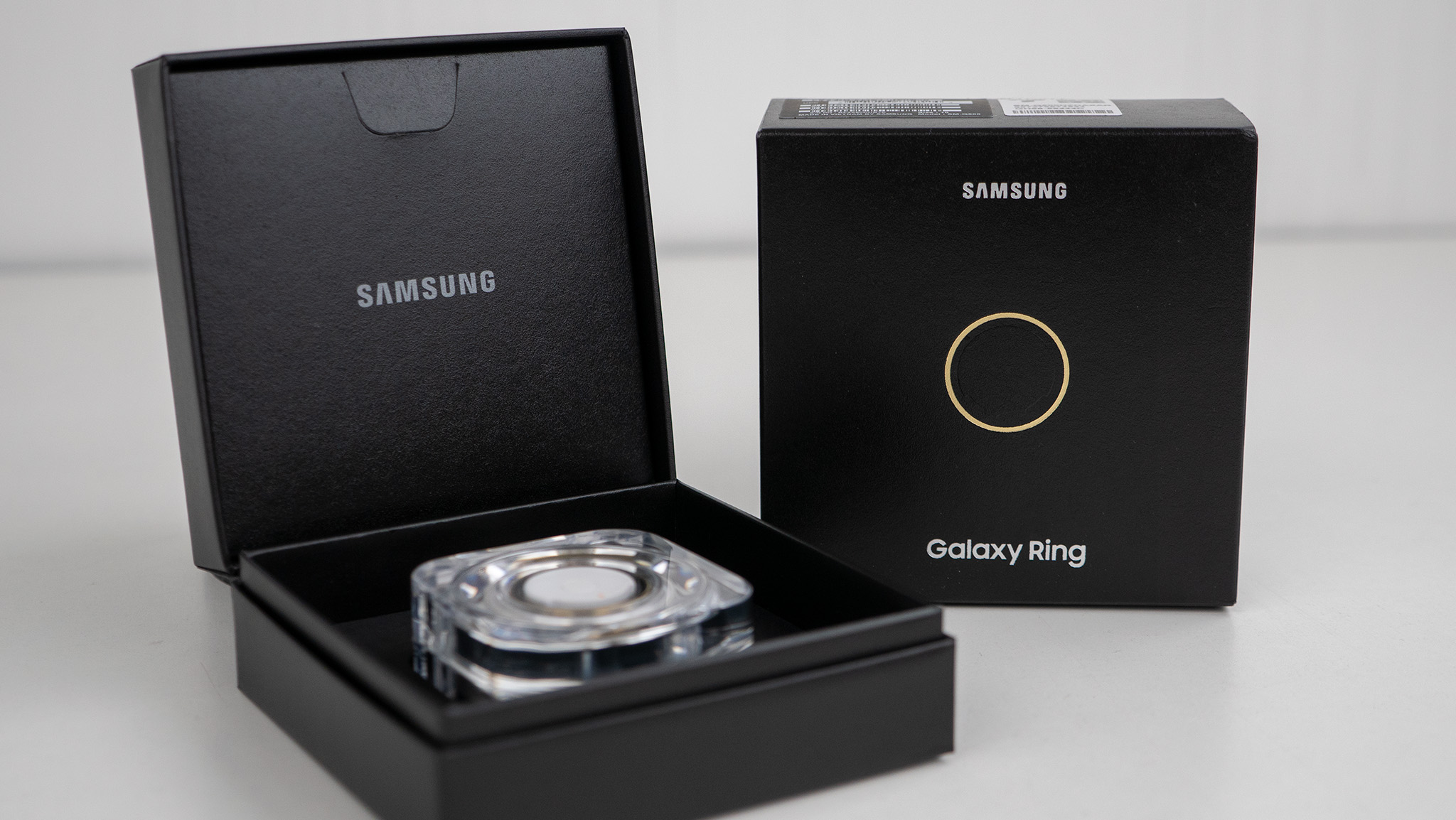
The Oura Ring 4 comes with a $50 price hike over the Oura Ring 3 but is still cheaper than the Galaxy Ring ultra out the gate. That is, of course, if you choose specific finishes. Black and Silver are $349, making them $50 less than the Galaxy Ring. Our Oura Ring 4 reviewer, Derrek Lee, preferred the $399 Brushed Silver option, while the Gold and Rose Gold options up the price to $499.
Meanwhile, the Samsung Galaxy Ring comes in Black, Silver, and Gold for the same $399 price across the board. Samsung requires customers to purchase a $10 ring sizing kit before buying but the kit comes with a $10 credit for a Galaxy Ring, making it free so long as you actually buy one. Oura doesn't charge for the sizing kit at all.
But the initial purchase isn't the only cost you need to consider. The Oura Ring's best features are only available when you subscribe to Oura's service, which costs $5.99 per month. It's not a lot of money but the $50 you could potentially save over buying a Galaxy Watch gets quickly made up in less than a year.
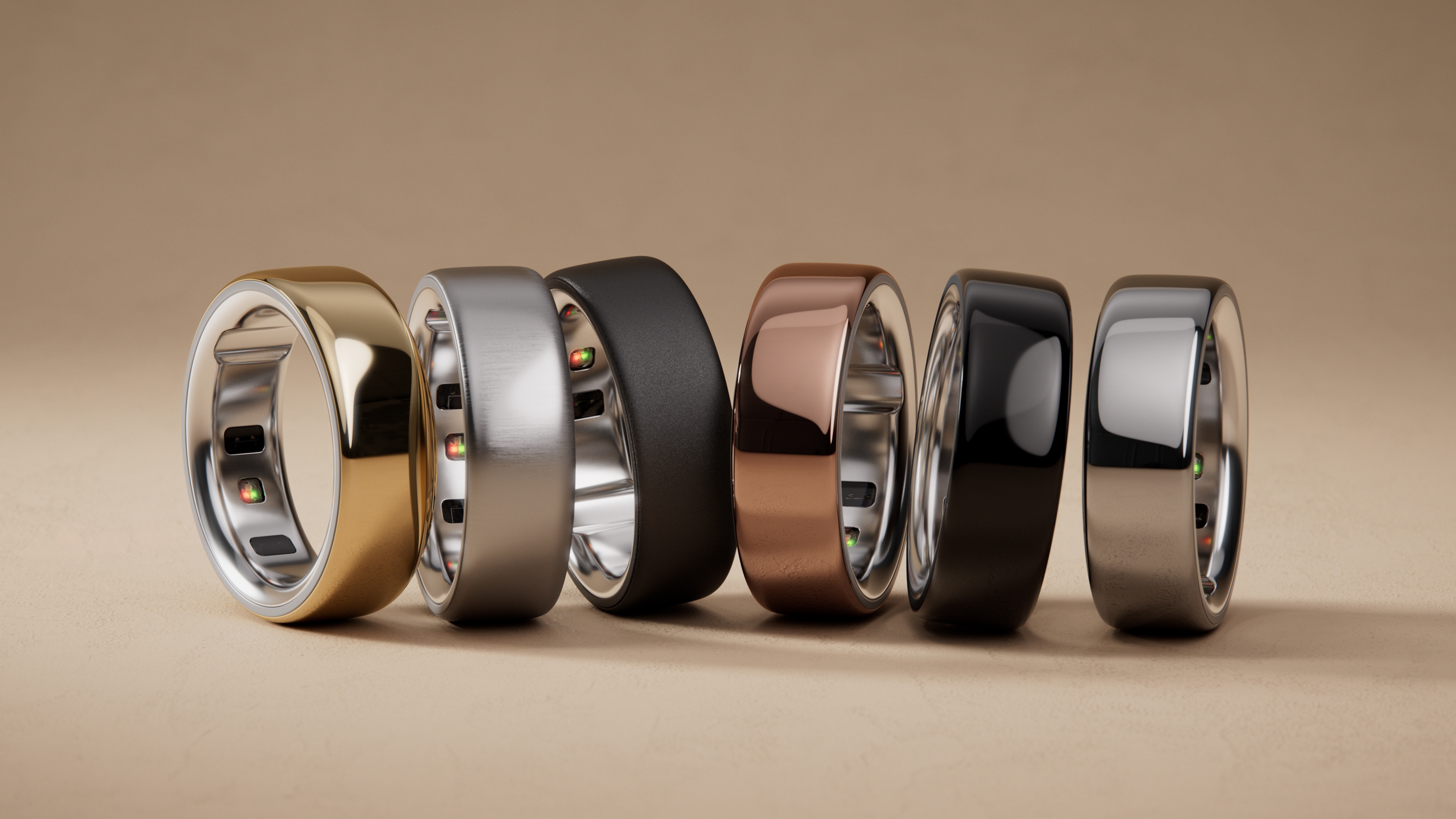
You could opt to ditch the Oura subscription but you'll only have access to your three daily Oura Scores, ring battery, basic profile information, and app settings. Everything else is locked and there's no way to get the data via a third-party app, either.
Get the latest news from Android Central, your trusted companion in the world of Android
Samsung offers all data for free but only offers AI-powered insights when you pair the Galaxy Ring with a Samsung phone that has Galaxy AI. Truth be told, Oura's subscription is worth it if you care about more accurate data which you'll find out more about in the health tracking section below.
Since smart rings are expensive, replacing a lost ring could be a deal breaker. Oura only offers a "find my ring" feature on iOS, but some Android users have had luck using the Wunderfind app. Oura is planning on adding this functionality to the Android app officially at some point.
Finding a lost Galaxy Ring is easiest with a Samsung device, as the company has deep location-based ties in One UI and offers a "last known location" feature for Galaxy users. All other Android devices have the option of blinking the lights on the ring to make it easier to find in the dark but other than that you're out of luck. I tried finding my Galaxy Ring once with the Wunderfind app and had no luck.
Oura Ring 4 vs. Samsung Galaxy Ring: Design and battery life
The Oura Ring 4 and Samsung Galaxy Ring look like normal rings, although both are a little bit thicker than your average wedding band. Both rings utilize titanium construction but only the Oura Ring 4 is titanium inside and out.
The new titanium inside of the Oura Ring 4 keeps all the sensors flat against your skin, meaning no irritating protrusion like the Galaxy Ring has. Plus, since it's titanium all around, it feels more premium than the epoxy that covers the sensors on the inside of the Galaxy Ring.
Titanium is plenty durable but the shiny gold variant Galaxy Ring I have has plenty of scratches that annoy me after just three months of use. It actually got scratched after just a few days of using it, while Derrek's brushed metal Oura Ring 4 still looks great as noted in his review on Android Central. Neither company offers official ring covers (cases), so be sure to choose a finish that will last.
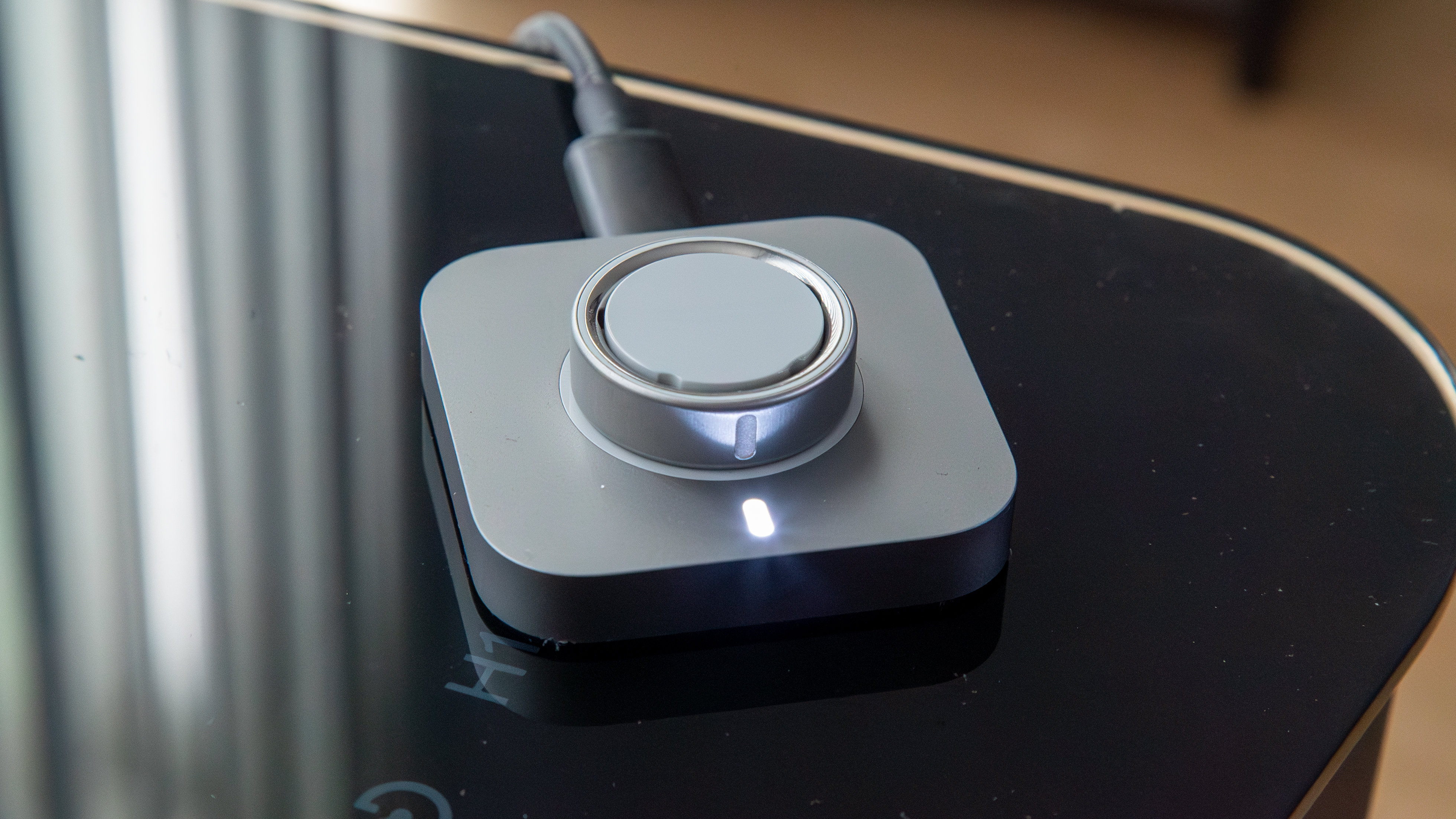
Both rings offer roughly a week's worth of battery on a single charge, although the Oura Ring 4 could last up to 10 days depending on your use. Long battery life is good because both rings take nearly 2 hours to charge, although the Galaxy Ring is more convenient because of the case.
That charging case is very similar to what you would expect to get with the best Bluetooth earbuds, making it super convenient to charge on the go. That's not only handy for traveling but also for those times when you forgot to charge the ring.
Meanwhile, the Oura Ring 4 ships with a charging dock that plugs into the wall so you'd have to leave your ring at home if you forgot to charge it. On the bright side, the Oura Ring 4's charger is far more premium-looking than the transparent one that ships with the Galaxy Ring.
Oura Ring 4 vs. Samsung Galaxy Ring: Health and sleep tracking
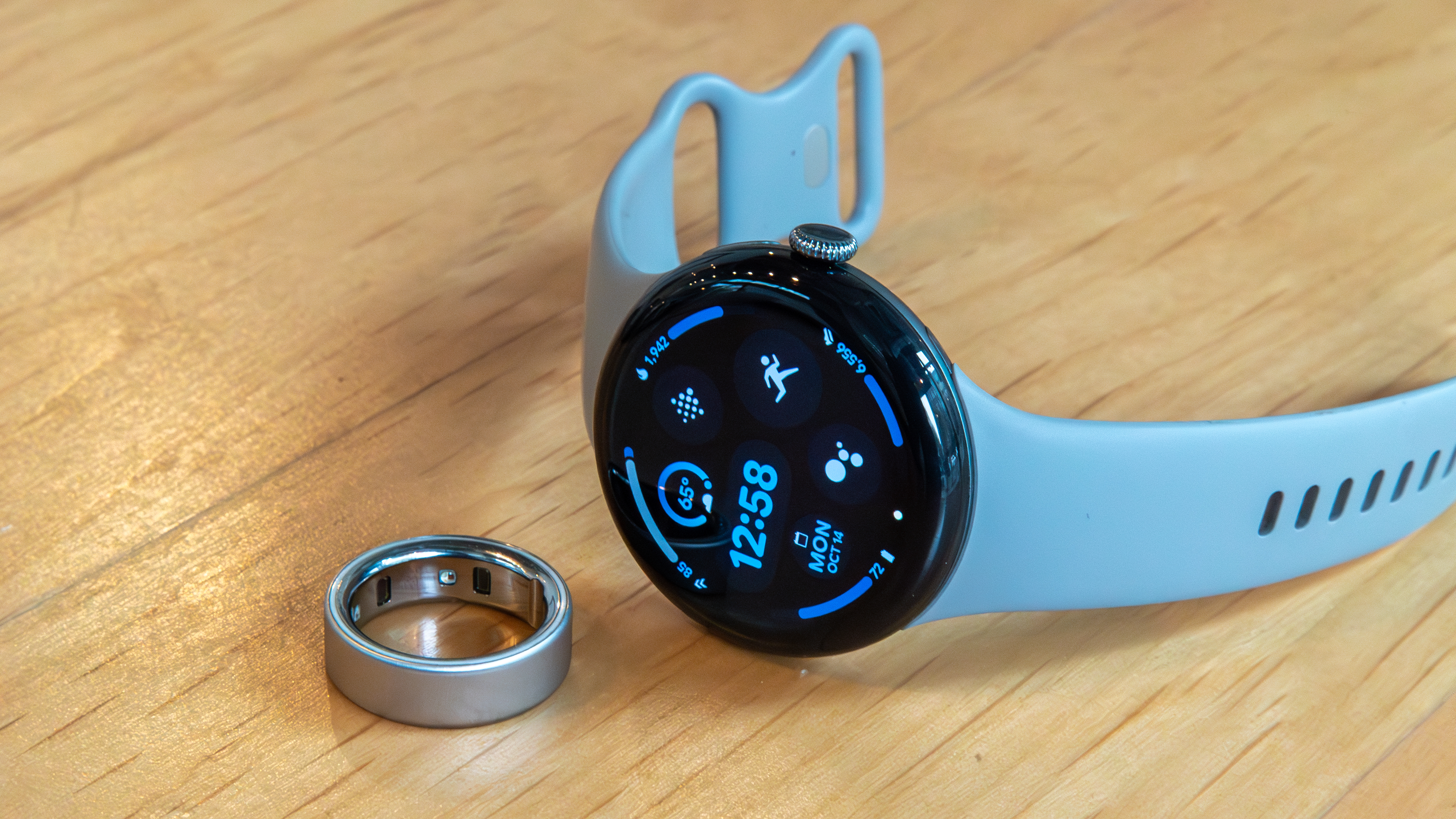
The main reason to get a smart ring is for 24/7 health tracking and, in particular, more comfortable sleep tracking than a smartwatch offers. Both rings offer 24/7 health tracking and sleep tracking but the Oura Ring 4 has been significantly more accurate in our tests.
As I noted in my Galaxy Ring review, the sleep-tracking accuracy isn't great compared to a Google Pixel Watch 2, the best sleep-tracking smartwatch I had at the time of review. I often found the Galaxy Ring's numbers were statistically significantly different to a point where I didn't trust the data it gave me.
Meanwhile, Derrek noted that the Oura Ring 4's sleep-tracking was right in line with his Pixel Watch 3. The only caveat he found was that it often said he slept a bit less than the watch told him, but the accuracy of the data while sleeping was great.
The Oura Ring 4 also has automatic workout tracking including more niche categories like dancing. Like the previous generation, the Oura Ring 4 will also track "miscellaneous" workouts it can't readily identify so you can go into the app and assign a label to it. You can also manually start a workout from the app and give it a label ahead of time for more accurate workout tracking.
The Samsung Galaxy Ring, meanwhile, only automatically tracks running or walking and only outdoors. I tried working out with the Ring for over a month and it seldom even noticed I was doing anything more than sitting at my desk working. There's no way to manually track a workout using the Galaxy Ring's data and the Galaxy Ring doesn't let you assign any kind of labels to detected workouts after the fact.
I even ran a Spartan Race back in August while wearing the Galaxy Ring and several other smartwatches and found the Galaxy Ring's data was totally inaccurate. Everything from the heart rate to the distance I ran was wrong, and it arbitrarily broke the race into sections whenever I needed a walking break.
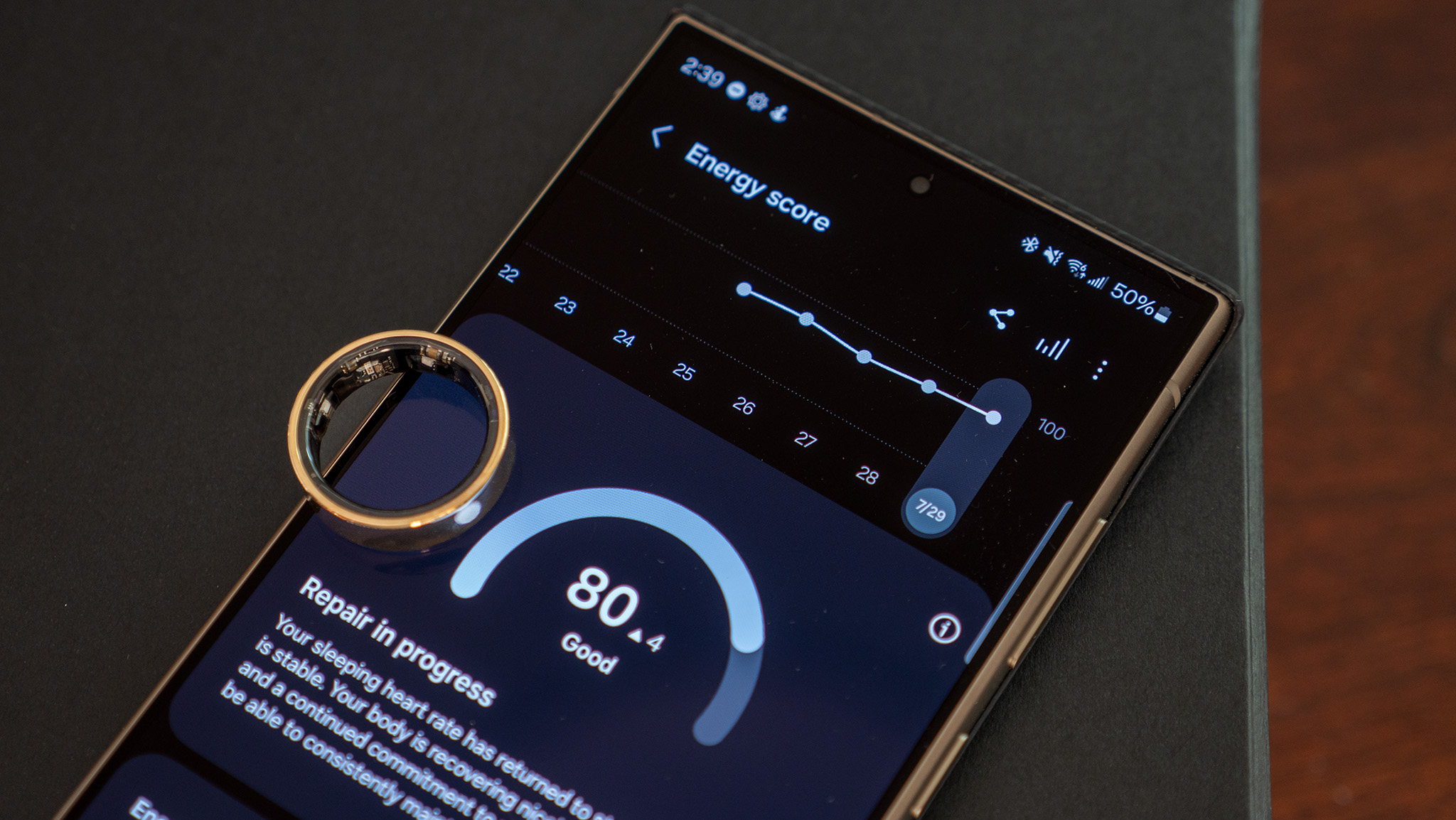
One thing I will give Samsung is that the Galaxy Ring's step tracking is crazy accurate based on our testing, while the Oura Ring 4 doesn't hold up nearly as well.
Both rings also offer period tracking and our testing from female staff members so far indicates that accuracy is on point.
Overall, though, I would not recommend the Galaxy Ring for anything more than extremely casual health tracking, while the Oura Ring 4 is a much better choice for a smartwatch replacement. You might have to pay for Oura's data but it's completely worth it given the absolute gulf in data accuracy between these two rings.
Both rings' apps are quite competent and offer plenty of data and features. Samsung's Galaxy Ring app ties in deeply with Samsung Health, an app that does everything and anything you could possibly ask for.
Samsung Galaxy owners get exclusive features when paired with certain Galaxy phones including Galaxy AI health coaching, ring gestures, location tracking, and a few others. Only location tracking is a killer feature, though, as many of the rest are fairly gimmicky.
The Oura Ring app just got a huge makeover in time for the Oura Ring 4 launch, bringing it up to par with some more modern app design standards.
One of the new features includes an AI-driven food logging feature which lets you take a picture of your food to estimate a nutritional breakdown of what you're eating. The app is also smart enough to understand your eating habits and can help you plan your eating times based on your overall health tracking stats.
Of course, you have to pay $5.99 per month to get these kinds of features on an Oura Ring 4 but, as I said before, it's definitely worth it if you're interested in accurate and usable health tracking.
Oura Ring 4 vs. Samsung Galaxy Ring: Which one should you buy?
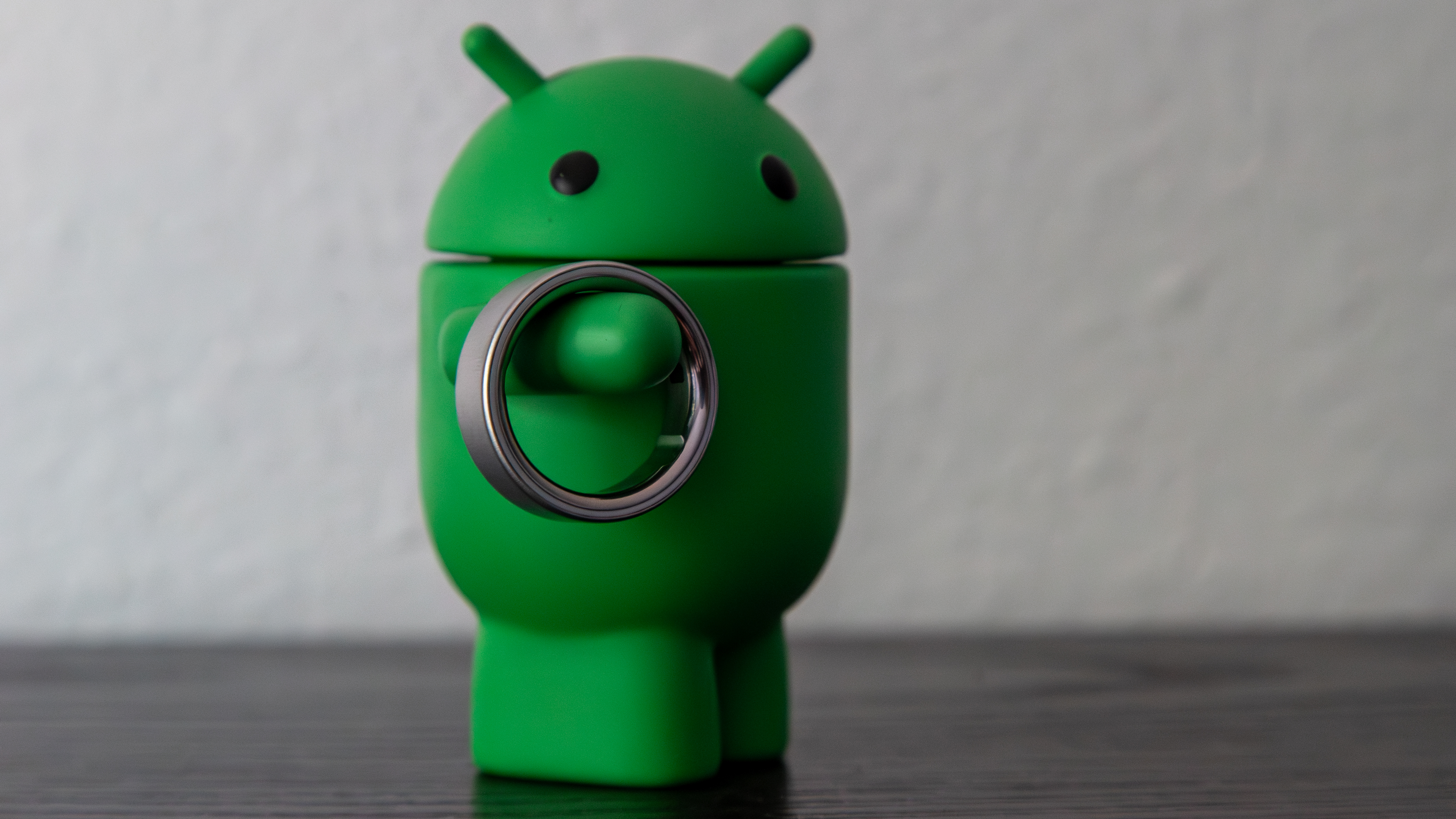
While the Oura Ring 4 will cost you more over time than the Samsung Galaxy Ring, it does just about everything better than Samsung's first smart ring. It's got a better design with a flush, titanium interior, the potential for longer battery life, and more accurate health tracking data.
Oura's app is also fantastic with actionable information and an easy-to-understand UI design. New features like AI-powered food logging and eating time suggestions help paint a better overall picture of your health than what Samsung offers, further rounding out the Oura Ring 4 as the superior choice. The Samsung Health app has a bevy of wonderful features, including some Oura doesn't have, but the inaccuracy of the data from the Galaxy Ring makes some of those features far less useful.
And while the omission of a charging case for the Oura Ring 4 feels a little silly these days, 7-10 day battery life means it's actually pretty difficult to wind up with a dead ring. You get what you pay for and, in this case, the Oura Ring 4 is a more expensive long-term investment that's absolutely worth it if you're investing in health tracking.
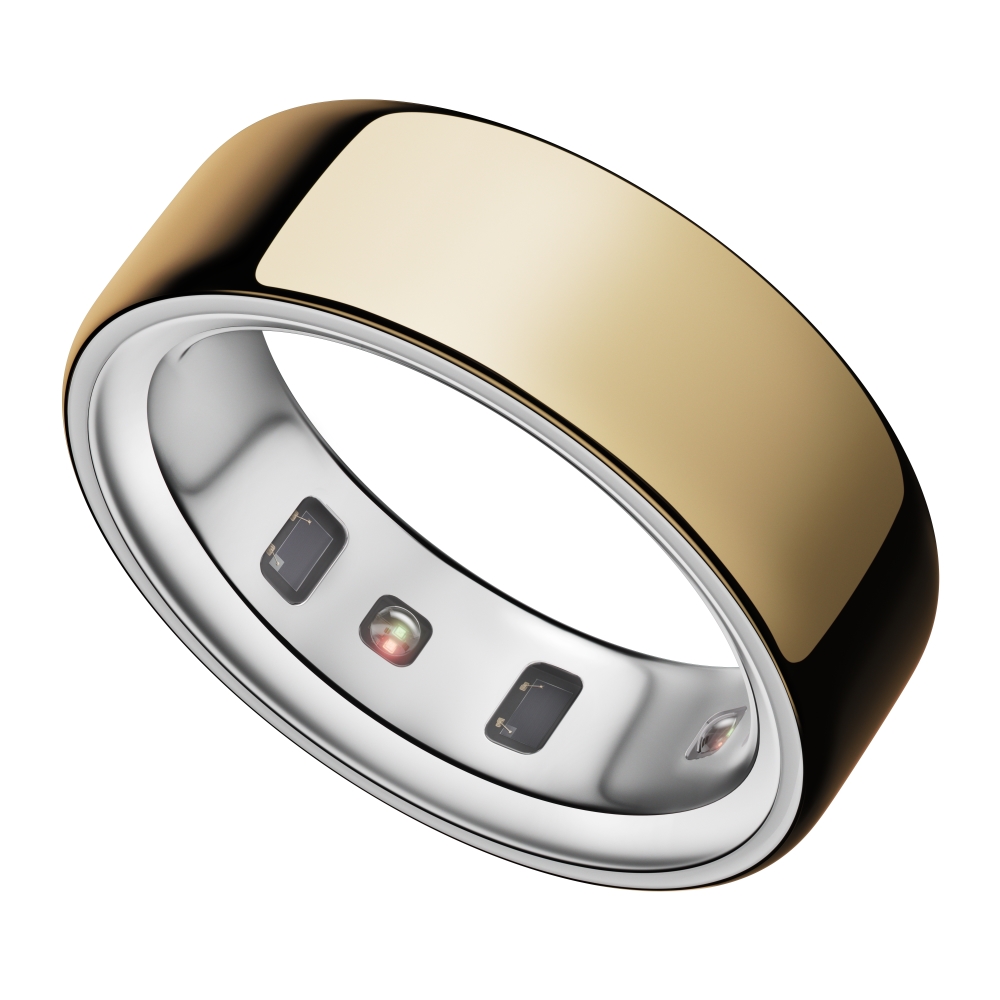
Cream of the crop
The Oura Ring 4 sports a gorgeous new design without protruding sensors, making it supremely comfortable. The best health tracking features and accuracy among smart rings only make things better, rounding out this winner of a smart ring.
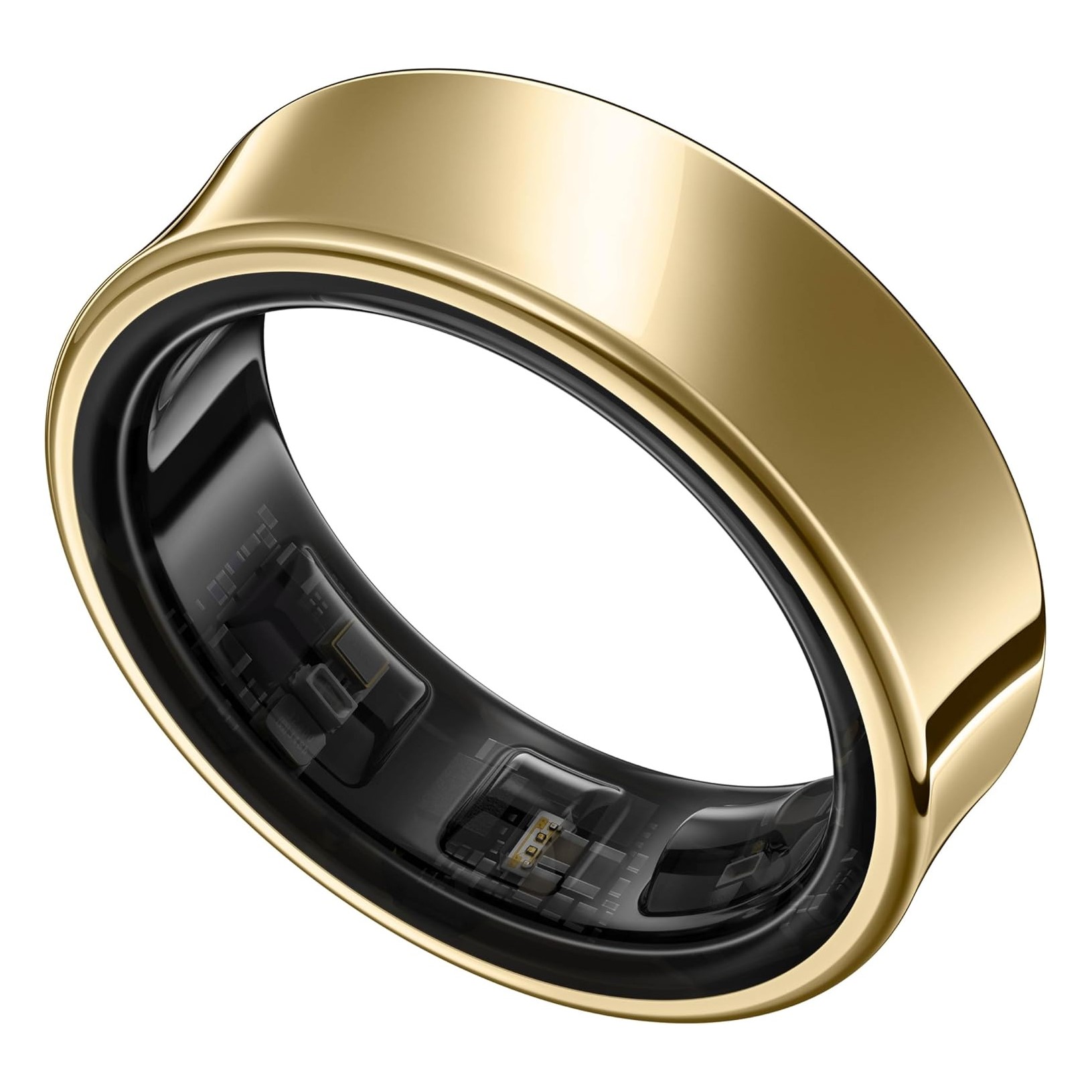
New player
Samsung's first entry into the smart ring market is admirable, but the Galaxy Ring has too many issues to recommend with any degree of confidence. Samsung has done a good job of integrating Galaxy products together, but there's not much else we love about the Galaxy Ring.

You must confirm your public display name before commenting
Please logout and then login again, you will then be prompted to enter your display name.
